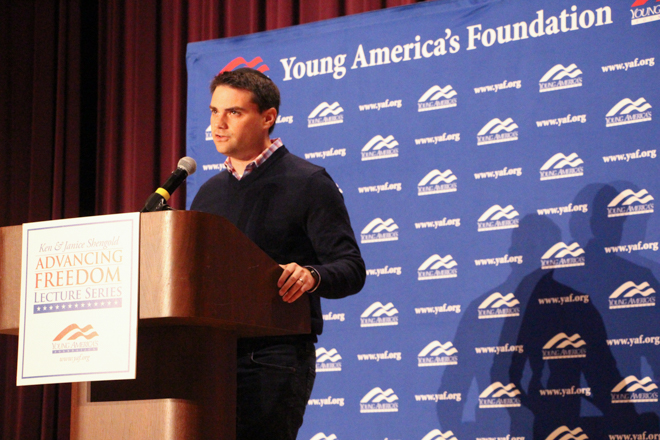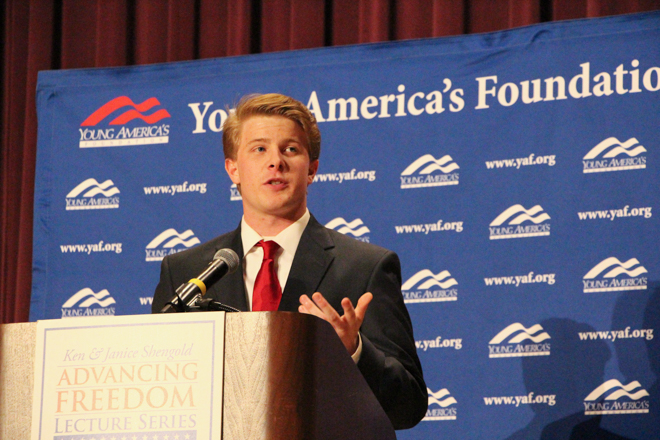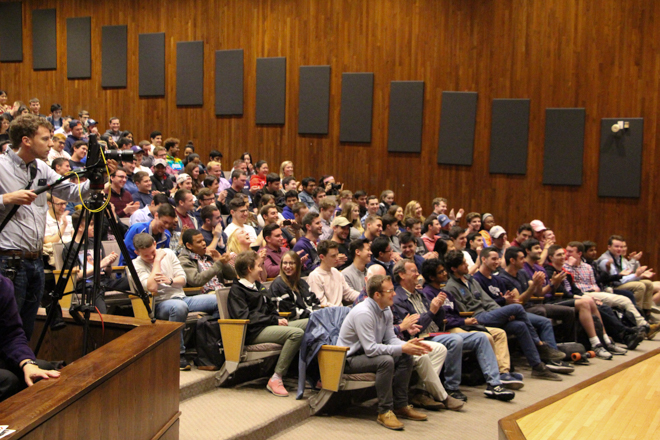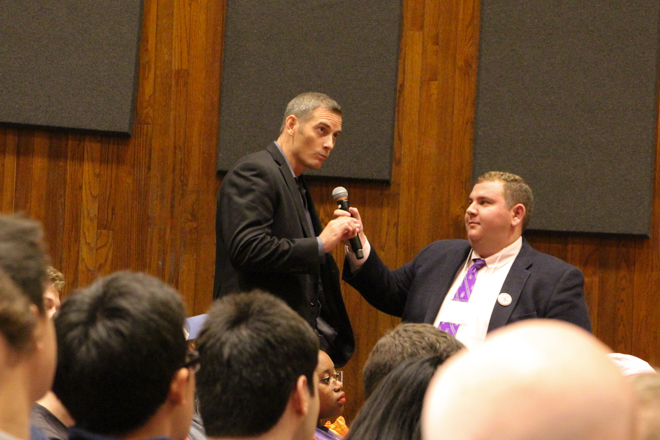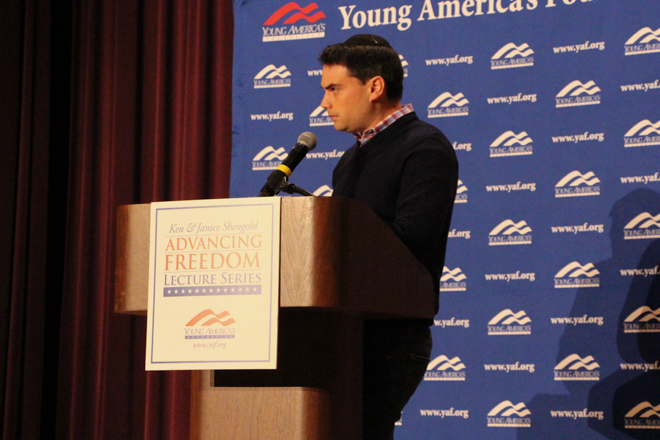Ben Shapiro has three rules for success in life: Get married before you have kids, finish high school and get a job. According to him, “your life is in your own hands.”
The "warrior for conservatism," a title given to him by David Donnelly, the president of the Northwestern University College Republicans, spoke to an almost full McCormick Auditorium on Wednesday night in an Advancing Freedom lecture co-sponsored by both NUCR and the Young America's Foundation. At the age of 17, Shapiro became known as the youngest syndicated columnist in the United States in his undergraduate years at UCLA. He’s now the editor-in-chief of the Daily Wire and previously served as the editor-at-large for Breitbart. And as Sammy Cuautle, the NUCR public relations secretary, put it, “he has a lot of interesting things to say.”
To Shapiro, having agency over one’s actions means systemic racism doesn’t exist. “It has to do more with the decisions that are made than the color of the skin,” he said.
In a rapid-fire speech before turning to a lengthy Q&A session, Shapiro suggested intersectionality is the left’s form of victimizing groups of people like Black, Hispanic and LGBTQ+ communities.
“If you are living in the United States in 2017, you are not a victim,” he said. Intersectionality from the left, in his opinion, has valued identity over opinion.
But breaking down his speech by taking on a list of identities like Black people, women and LGBTQ+ people, he argued that the victimization of these groups may have existed in the past but no longer persists.
For Black communities, he said he believes the government cannot rectify past imbalances by creating injustices today. Currently, he said these communities, “have the right to equal access.”
His solution for Black communities shrouded in poverty: more police presence. “Crime destroys Black communities, not police officers,” he said. Shapiro did go on to acknowledge that the “mistrained” police officers in cases like that of Laquan McDonald in Chicago that have killed innocent Black individuals should be prosecuted to the full extent of the law. According to data from the Washington Post, 95 Black individuals have been shot and killed by police since Jan. 1.
As for women, Shapiro said in the U.S. “they are living the freest most prosperous lives of any women in the history of the planet.” However, according to US News, the United States is 16th on the list. The notion that the U.S. is a patriarchal society is “silly” to Shapiro, and he attributed the wage gap that exists to time taken off by women on maternity leave. He went a step further by tackling the allegations against the Northwestern chapter of Sigma Alpha Epsilon fraternity (SAE), head on. He said that “no evidence was ever presented” in the case of SAE, and that, in his opinion, cases can’t be prosecuted on anonymous allegations.
When audience members were invited to ask questions, Shapiro encouraged those that didn’t agree with him to go first because it made for more interesting debate. Many of the students with questions disagreed with Shapiro on many points.
Khaqan Ahmad, a SESP freshman, asked him about whether his confrontational speaking style actually helped him engage in debate within a polarized political environment, or just gave those that already agree with him a springboard for their opinions. According to Shapiro, it’s a bit of both. He said he uses his blunt approach as a way to disarm the character insults thrown his way in order to delve into real debate. Most people attack him after all, he said, because he tells them what they don’t want to hear. “It's because of my views that they attack my character,” he said. In reality, Shapiro said, there’s people that deserve it more than he does, like Donald Trump, who he said is “legitimately not the world’s greatest guy.”
Another student asked how we can prevent a culture of bullying in political discussion to which Shapiro stressed the importance of engaging in individual conversations. “Determine whether someone wants to have an honest conversation,” he said. Making a distinction between “the left” as those who ignore political discussion and “liberals” as those who engage, he said, “Thank you to all the liberals who showed up tonight,” which was met by applause from the crowd.
“Those are the people [liberals] you're going to have an honest conversation with and who you're going to have to stand beside,” he said.
